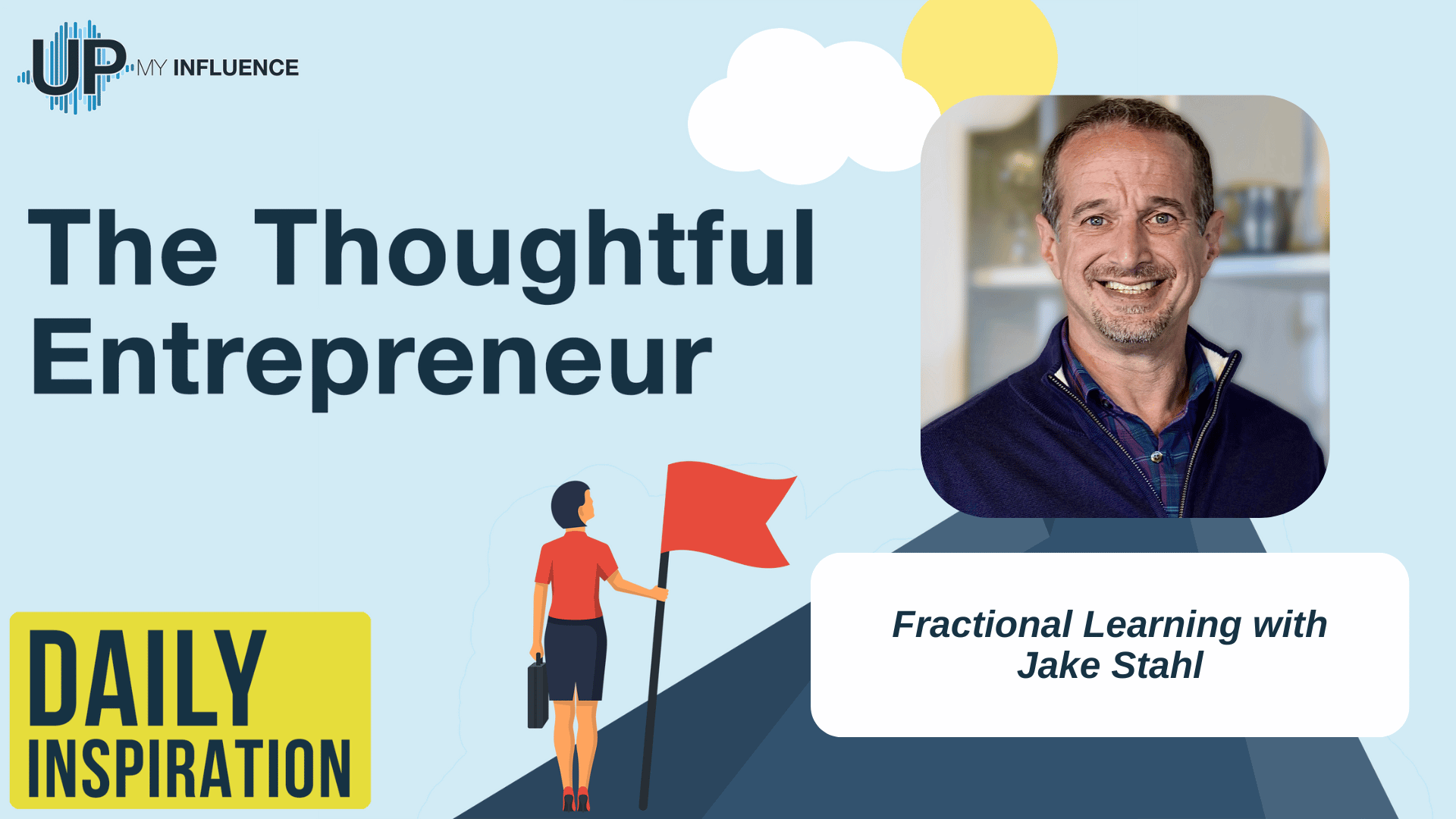THE THOUGHTFUL ENTREPRENEUR PODCAST
In this episode of the Thoughtful Entrepreneur, your host Josh Elledge speaks with the CEO of Jake Stahl Consulting, Jake Stahl.

Jake Stahl's role as a fractional chief learning officer provides a strategic advantage for companies that value employee development but lack the resources for a full-time CLO. His method offers access to high-level learning strategies without needing a full-time executive, providing essential flexibility for scaling and adapting in a rapidly changing business landscape.
He emphasizes the importance of thorough training and development to ensure a substantial return on workforce investment. Jake points out that inadequate training can result in higher turnover rates, which are costly and disruptive. By prioritizing quality training programs, companies can increase employee engagement, boost performance, and drive business success.
Jake highlights the importance of interactive learning experiences in response to the expectations of today's workforce. Employees seek active involvement in their learning beyond passive lectures. Using technology and innovative teaching techniques, he crafts immersive learning environments that engage employees and promote more profound understanding.
Key Points from the Episode:
- Role of a fractional chief learning officer
- Importance of effective onboarding and training for new employees
- Investment in proper training and development for high return on investment and reduced turnover
- Expertise in instructional design and psychology of learning
- Understanding the learner's perspective and customizing training programs
- Creating interactive and engaging learning experiences for employees
- Approach to thought leadership in the learning and development industry
- Practical advice for businesses to improve training and development processes
About Jake Stahl:
Jake Stahl stands at the forefront of conversational dynamics, earning widespread acclaim as a fractional Chief Learning Officer. His innovative ‘Adaptive Conversational Blueprint' is transforming the landscape of sales, equipping sales professionals with the skills to become relational architects who build deep connections with their prospects. This groundbreaking approach is further enhanced by his development of the 2/10 Rule, which upends conventional views on the flow of conversation by prioritizing rhythm and cadence.
With an illustrious career spanning over three decades, Jake has made significant contributions to the field of training and development, sharing his profound knowledge and expertise across six countries and positively impacting the lives of more than 10,000 individuals. Beyond his professional achievements, Jake is a master mason and a devoted father to four children, seamlessly integrating his vast practical experience with his deep insight into human connections. His work not only strives for the art of perfect conversation but also significantly empowers businesses and professionals through mastery in communication.
About Jake Stahl Consulting:
Jake Stahl Consulting emerges as a revolutionary solution amidst the growing challenges companies face in hiring executives while managing costs effectively. The firm offers a game-changing alternative to traditional training departments that can incur expenses up to 150% of yearly salaries when considering benefits, unemployment insurance, onboarding, and more. By questioning the status quo, Jake Stahl Consulting proposes a transformative approach that enables sales teams to navigate and master the art of conversation without reliance on restrictive scripts, which often obscure rather than solve underlying issues.
This consultancy doesn't just offer a new technique; it embarks on an in-depth exploration of the human psyche, applying advanced psychological methods and social psychology research to tailor solutions that deeply resonate with each client's unique requirements. With nearly a century of combined expertise, the staff at Jake Stahl Consulting act as strategic partners, empowering businesses to enhance their sales outcomes significantly. Clients gain access to vast real-life experience and expert advice without the usual burdens of resume vetting or recruiter fees, paving the way for sales strategies that are personal, effective, and deeply rooted in understanding human behavior and decision-making processes.
Tweetable Moments:
03:37 – “If you let that person go, you're spending that money again and still dealing with the loss of revenue you already have budgeted.”
Links Mentioned in this Episode:
Want to learn more? Check out Jake Stahl Consulting at
https://jakestahlconsulting.com/
Check out Jake Stahl Consulting on LinkedIn at
https://www.linkedin.com/company/jake-stahl-consulting/
Check out Jake Stahl on LinkedIn at
https://www.linkedin.com/in/jakestahl/
More from UpMyInfluence:
We are actively booking guests for our The Thoughtful Entrepreneur. Schedule HERE.
Are you a 6-figure consultant? I’ve got high-level intros for you. Learn more here.
What is your #1 Lead Generation BLOCKER? Take my free quiz here.
Want to learn more about all the podcasts managed by UpMyInfluence? Opt in here.

